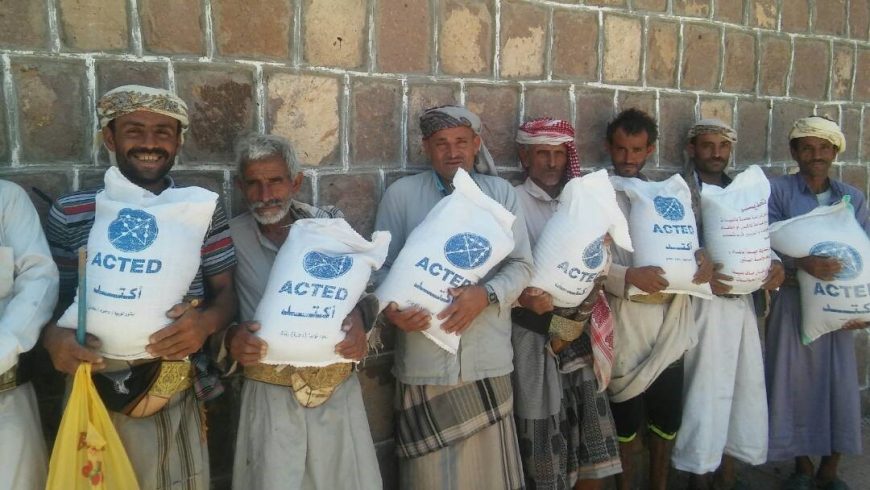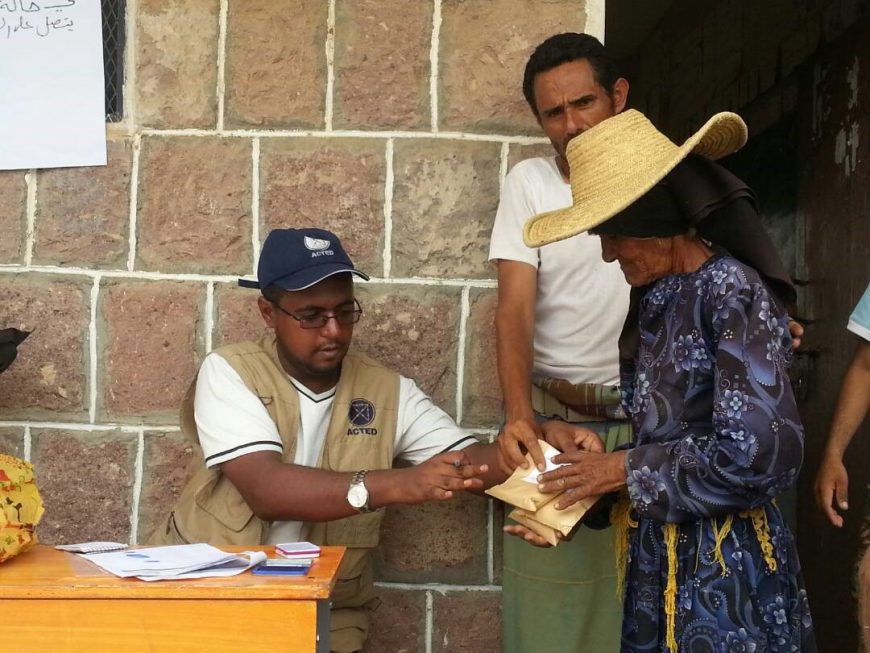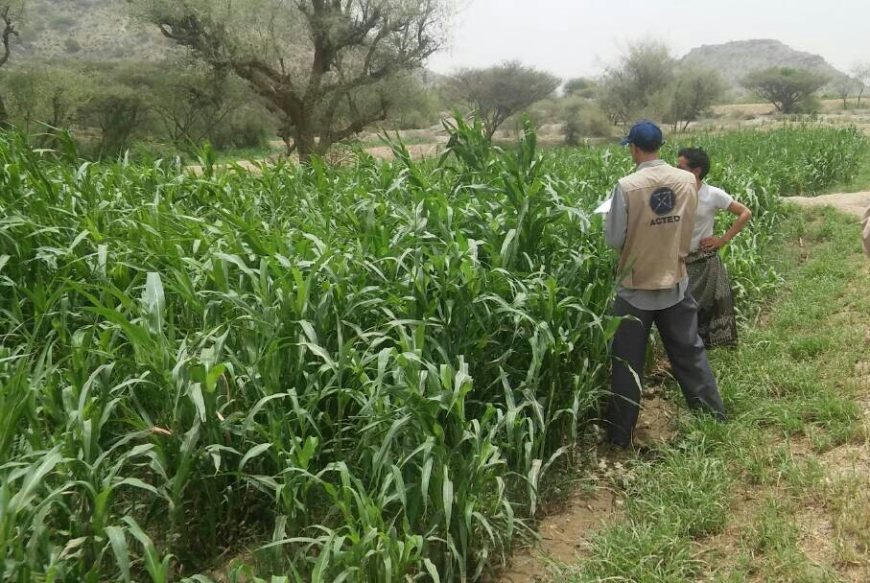“Choose, which one is the method you used to store your seeds for the coming cultivation season? By mixing them with other seeds, keeping them in separated containers or keeping them in their husk?” This was one of the questions asked to farmers in Al Jawf governorate. This survey was part of the seed distributions meant to help farmers in Yemen, who were unable to plant because they had no access to seeds otherwise.
Obstacles in cultivation and in access to seed inputs
“I am a farmer and, like the others, I could hardly call myself a farmer,” said Mohammad, 38, from Bart Al Anan district. He pointed out that he could not call himself a farmer if he cultivated and harvested nothing.
“We cannot handle our work, we cannot harvest good crops in the shadow of such difficult circumstances, of war and blockade. The seeds or fuel, which is essential for our work, are not available anymore, and when they are available, they are so expensive that we cannot afford to buy it,” he added.
I am a farmer and, like the others, I could hardly call myself a farmer. We cannot handle our work, we cannot harvest good crops in the shadow of such difficult circumstances, of war and blockade. The seeds or fuel, which is essential for our work, are not available anymore, and when they are available, they are so expensive that we cannot afford to buy it.
The ongoing conflict has significantly impacted crop production, which in 2015 was 30% inferior to the production in 2014. This is due to inadequate seasonal rains, poor access to farmlands, and the high prices of agricultural inputs. Now, as of 2018, agricultural production is even more difficult, as fuel prices have skyrocketed, constricting fuel-based farming in the northern governorates of Yemen, like Al Jawf. This is in addition to the difficulties faced in getting seeds. It is one challenge after another to get crops to grow.

An action for food security
ACTED worked with the OFDA to support 2,400 farmers across Raymah, AlDhale’e, and AlJawf governorates. These are key agricultural zones to encourage agricultural production and food security since they are where the most vulnerable farmers cannot buy seeds and, as a result, are unable to produce anything.
And so Mohammad is part of the men and women who received help from his district’s Beneficiary Selections Committees. Like the others, he has access to farm land and to cultivation tools, but is unable to access seed inputs. These committees gave priority to the most vulnerable households: to families where the mother is widowed or divorced with children, to families with a high number of children, to households without any adult, and to households with pregnant or lactating women.
Better seeds means better crops and better food self-sufficiency
In this programme, ACTED distributed an estimated of 50kg of seeds from various types (wheat, potato…), determined through community discussions and in consultation with local experts.
Prior to receiving seed kits, Mohammad attended training sessions on methods of protecting plants against pests and disease, as well as on the proper and safe use of pesticides. Mohammad was also trained on how to prepare organic fertilizer. He believes that the kit and training he received will enable him to increase his agricultural capacity, which would then be reflected in his monthly food security. “After I received the kit, I immediately went to go plant in my fields,” Mohammad said.


